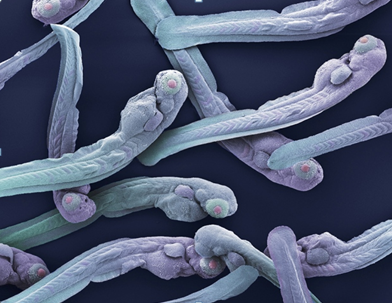Six months ago, Chinese researchers reported in Nature Biotechnology that an enzyme called NgAgo could be used to edit mammalian genes, and it could surpass even the might CRISPR/Cas9 for editing mammalian genes. But within days of publication other scientists complained that they could not replicate the experiment. A controversy is escalating over whether a gene-editing technique proposed as an alternative to the popular CRISPR–Cas9 system actually works. Now this argument has moved from digital to print, as a new paper published earlier this month in Protein & Cell lists multiple failed attempts to recreate gene-editing with NgAgo.
Now, a paper with 20 authors, published in Protein & Cell, lists multiple attempts that failed to replicate the original experiment, eight of the labs then tried again, adhering as closely as possible to Han’s experiment, using genetic materials provided by Han, targeting the same genes and also applying the technique to human cells. They all failed.Another paper, published in Cell Research, suggests that NgAgo may only block, but not edit, genes when it is injected into zebrafish (Danio rerio) embryos.
Han Chunyu, a biologist at Hebei University of Science and Technology in Shijiazhuang who first reported the NgAgo experiment, says he is standing by the original claims. He says that he hopes to submit a scientific paper explaining why others are having difficulty by the end of the year.
A spokesperson for Nature Biotechnology sent us this statement:
“Nature Biotechnology has carefully considered all comments relating to the original paper by Han and colleagues. As in all cases where a paper encounters criticisms after publication, we have undertaken a careful and thorough evaluation of these criticisms. Today, we are publishing not only a Correspondence by Cathomen and colleagues that may refute the main finding of efficient editing of an endogenous gene claimed in the original paper, but also an Editorial Expression of Concern alongside the original paper to ensure that readers are aware of the concerns raised by the paper by Cathomen and colleagues and a report published elsewhere in the literature . At this time, two authors of the original paper, Chunyu Han and Xiao Shen, agree with this Editorial Expression of Concern, whereas Feng Gao, Feng Jiang and Yongqiang Wu do not feel that it is appropriate. Nature Biotechnology believes that it is important for authors to be able to investigate the concerns raised by the Correspondence and to provide additional information and evidence to support their paper if they are able to do so. Thus, we will continue to liaise with the authors of the original paper to provide them with the opportunity to do that by January 2017. An update will be provided to the community at that time.”
Does the new gene editing method NgAgo work or not? If not, what happened? Could CRISPR itself in the next few years become obsolete having been replaced by other new technologies such as the upstart NgAgo? Could CRISPR itself in the next few years become obsolete having been replaced by the upstart NgAgo? Let’s see what the data from Han Chunyu and his colleagues in the January 2017.

